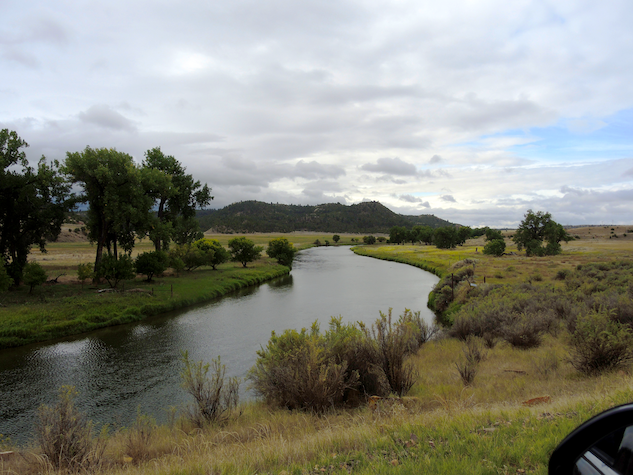By Derf Johnson

Protecting Montana’s water is no easy task. It’s about tenacity, buckling up for the long-haul, being nimble and opportunistic, and leveraging our collective power to steer the ship towards clean water. All the while, major headwinds work against us, including a hostile legislative majority that panders to extractive industries. When victories do come, they are a reason to celebrate and remind ourselves that progress can be made, however incremental. Such a victory happened in late March of this year, when the U.S. Office of Surface Mining (OSM) rejected changes to Montana’s Surface and Underground Reclamation Act — the law that regulates coal mining in Montana — that, if approved, would have dramatically weakened water quality protections at and near coal mines.
Readers of Down to Earth may recall that the 2023 Montana Legislature passed, and Gov. Greg Gianforte signed, HB 576 (Rep. Rhonda Knudsen, R-Culbertson). The bill came at the behest of the coal mining industry and dramatically changed the definition of “material damage,” a critical component of coal mining laws that protects water near coal mining operations. Most importantly, the bill removed clear and concise language that defined material damage, in part, as a violation of water quality standards, instead replacing it with a complex, site-specific analysis that would have been incredibly difficult to enforce. While it passed, the bill did not go unchallenged – MEIC, our organizational partners, and thousands of our collective members and supporters put up a strong fight.
Thankfully, Montana doesn’t have the final say over coal mine regulations, as we participate in a relationship of “cooperative federalism” with the federal government in regard to the permitting and regulation of Montana’s mines. Any changes to Montana’s regulatory program must go through an approval process at OSM, which includes a public comment period and a hearing. OSM approval must occur before the change actually becomes law. Montanans showed up in droves in strong opposition to the changes, and OSM was forced to listen. MEIC and our partners packed the hearing room, submitted comments from all four corners of the state, and submitted technical comments on the more dangerous aspects of HB 576. MEIC and our partners also brought suit in U.S. District Court to assure that the law was not implemented unless and until OSM had conducted its evaluation process.
Thankfully, OSM conducted a full, fair evaluation of HB 576 and concluded in March that the legislation wholly failed to meet the minimum requirements of federal law. With HB 576’s rejection, Montana’s strong water quality protections remain intact, which if adequately enforced prevent coal mining operations from violating water quality standards (what a novel concept!). This critical victory will help to assure that, as coal mining operations wind down in Montana, we maintain clean water. This victory would not have been possible without the steadfast support and coordination of our partners at Earthjustice and the Northern Plains Resource Council.
This article was published in the June 2024 issue of Down To Earth.

